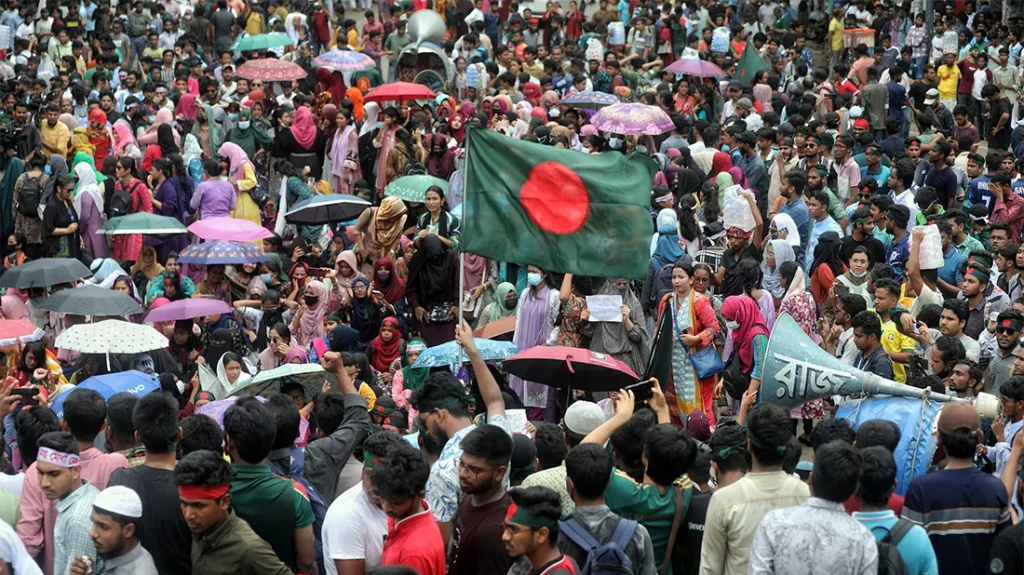Expectations from the interim government after one month
Our country could be on the brink of irreparable damage and August 5 marked a critical date. Now, shouldering the responsibility for all the hardships, the interim government faces a daunting task. The oppressive Hasina government’s reign complicates the accountability process, with only the bureaucrats capable of impeding progress within the system.
There’s no doubt about the intentions of this government’s chief adviser, Professor Yunus, during this transitional period. Trust in Yunus is unmatched, and he can manage foreign pressure. Given that this is a technocratic government per the definition of state science, they should consider specialized individuals if they need more advisers later on.
One agriculture specialist should be considered for the Ministry of Agriculture, Ministry of Food, and Ministry of Fisheries and Livestock. The private sector also requires attention, assuming it generates 95% of stagnant jobs and revenue. So, one business leader from the private sector will provide a lot of support.
Bringing in experienced individuals from government administration will make the adviser’s job more manageable, preventing suffering caused by the bureaucrats in the system they have created. One month has passed, and now we are looking at reformation. Let’s see what they can do in reformation sectors.
The fascist Awami League government violated all laws by attacking peaceful demonstrations and student movements. Fascist parties are permanently banned in all countries, and the same should be implemented in our country.
Additionally, the names and addresses of all those who have been martyred or suffered must be documented, ensuring the mistakes of 1971 are not repeated. These martyrs should receive separate compensation and state honors.
A new constitution is not just a desire but a necessity in Bangladesh. The current one, which allows dictatorship and treats the people as subjects, must be replaced. The majority of the population yearns for a new constitution to be implemented.
The education sector requires a revamp, with a new syllabus replacing the old one. If necessary, qualifications are unavailable; the Oxford syllabus books can be given to students in Bengali. Duplication and unjust grading practices should be eradicated, and universities should focus on research-oriented and updated curriculums, eliminating student-teacher politics. Teacher and student politics have to be banned.
The country’s economy is in dire condition. Syndicates causing inflation must be dismantled and measures should be undertaken to recover export money, smuggled cash, and defaulted bank loans. Reforms in the financial sector, such as ending capacity charges and illegal concessions to India, could yield significant savings.
I sincerely hope Professor Yunus succeeds in the most critical work of his life.
Our medical sector is being deliberately outsourced to India, leading to unnecessary expenditures by our citizens. We must address this situation and create a plan so that no one needs to go abroad for medical treatment. Implementing the dream of the late Zafrullah sir can be a crucial step in this direction.
Ensuring that our judiciary is independent and staffed with qualified individuals is not just a preference but a crucial necessity. All previous political appointments should be revoked, and a minimum requirement to be appointed as a judge should be a Master’s degree and a first-class standing from a university. This will help ensure that individuals can access the court system based on merit rather than political affiliation.
Government jobs should not be subject to political favoritism. Those who have violated government service rules by acting as party spokespersons should be dismissed. In addition, there should be accountability in government positions to prevent abuse of power.
Government jobs should be made contractual, similar to the system in India, with promotions and renewals based on performance. Annual audits of government offices should be conducted, and independent authorities should regularly verify tax files and property accounts to combat corruption. All the professional bodies must be free from politics.
Unemployment is the central area of concern. To address unemployment issues, the remaining vacancies in government jobs should be filled, and those who obtained jobs illegally should be removed. The entire job system needs to be reformed.
Efforts should be made to increase domestic production and make business processes more efficient to facilitate business. Reducing bureaucratic hurdles and attracting foreign investment will be crucial in this regard.
Corruption at all levels should be addressed, and swift and exemplary offender punishment should be implemented to deter future instances.
Swift action should be taken to recover weapons held by certain groups and to prosecute individuals involved in criminal activities. Measures need to be taken to investigate and prosecute cases of disappearances, murders, and injustices.
Restructuring the electoral system is essential to work towards restoring democracy and ensuring transparency in political processes, including financial transparency within political parties.
An independent foreign policy must be developed, and any agreements not in the country’s best interest should be reconsidered and potentially canceled.
Writing numerous requests in a limited space is challenging. I sincerely hope Professor Yunus succeeds in the most critical work of his life.
